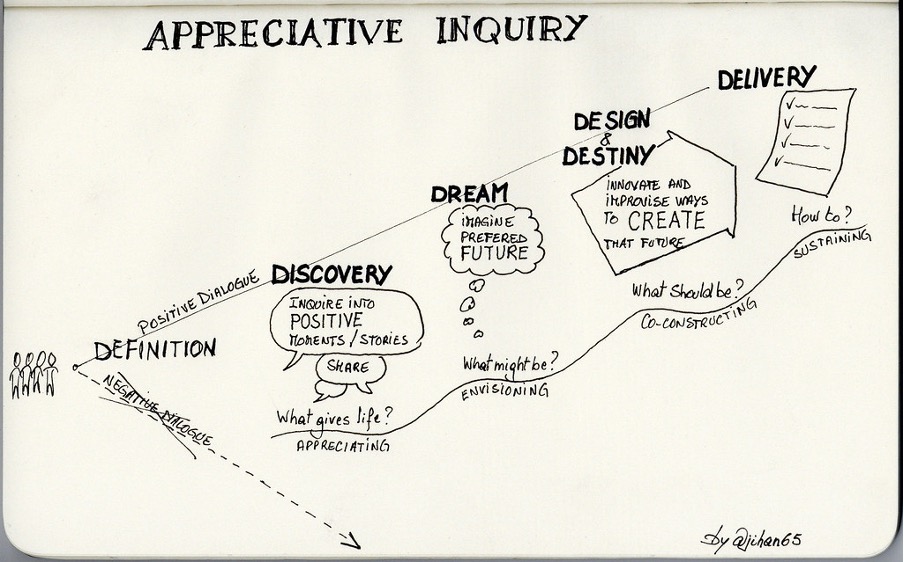
The power of appreciative inquiry
Over the past year Lucy Roberts and I have been using appreciative inquiry with a range of organisations. We have found it a powerful way to unlock potential and generate momentum.
It’s also very flexible. Teams have used it to build trust and create psychological safety. A global NGO worked with it to develop their results framework. It’s also great for reviews and evaluations.
People often ask: what makes appreciative inquiry so powerful and how can I use it?
The answer lies in the two words that make up its name.
Appreciative
When we set our intention to be appreciative, we see our world differently. We look at what already works rather than what needs to be fixed.
After the hard years of the pandemic and with the uncertainty of the coming years it is easy to become dispirited, to feel that things are not working. An appreciative approach allows us to shift our attention away from problems, to reflect on what we want to do and to identify what we can already do to achieve that.
For example, in an organisation which had low levels of trust, using appreciative inquiry the team discovered that there were lots of examples of people working well together, which they then used as the foundation for a better working environment.
Inquiry
At the heart of any inquiry is curiosity. Curiosity requires us to open our minds, to listen to people, to pay attention to what is actually happening, rather than to what we believe is happening.
To be curious means suspending our day to day assumptions.
The first phase of appreciative inquiry is discovery. It unlocks new insights as people see their work in new ways.
For example, when staff at an NGO working on education asked a community what matters most to them, they discovered it was the NGO being present in the community rather than the content of the education programme.
So what?
The core principle of appreciative inquiry is that an organisation grows in the direction that people focus their attention. Knowing what you are doing well and being clear what you want to do well is great preparation for embarking on change.
Organisational change requires a huge amount of energy – appreciative inquiry connects us back into a major source of energy – what we do well.
If you are interested to learn more, please contact me below.
